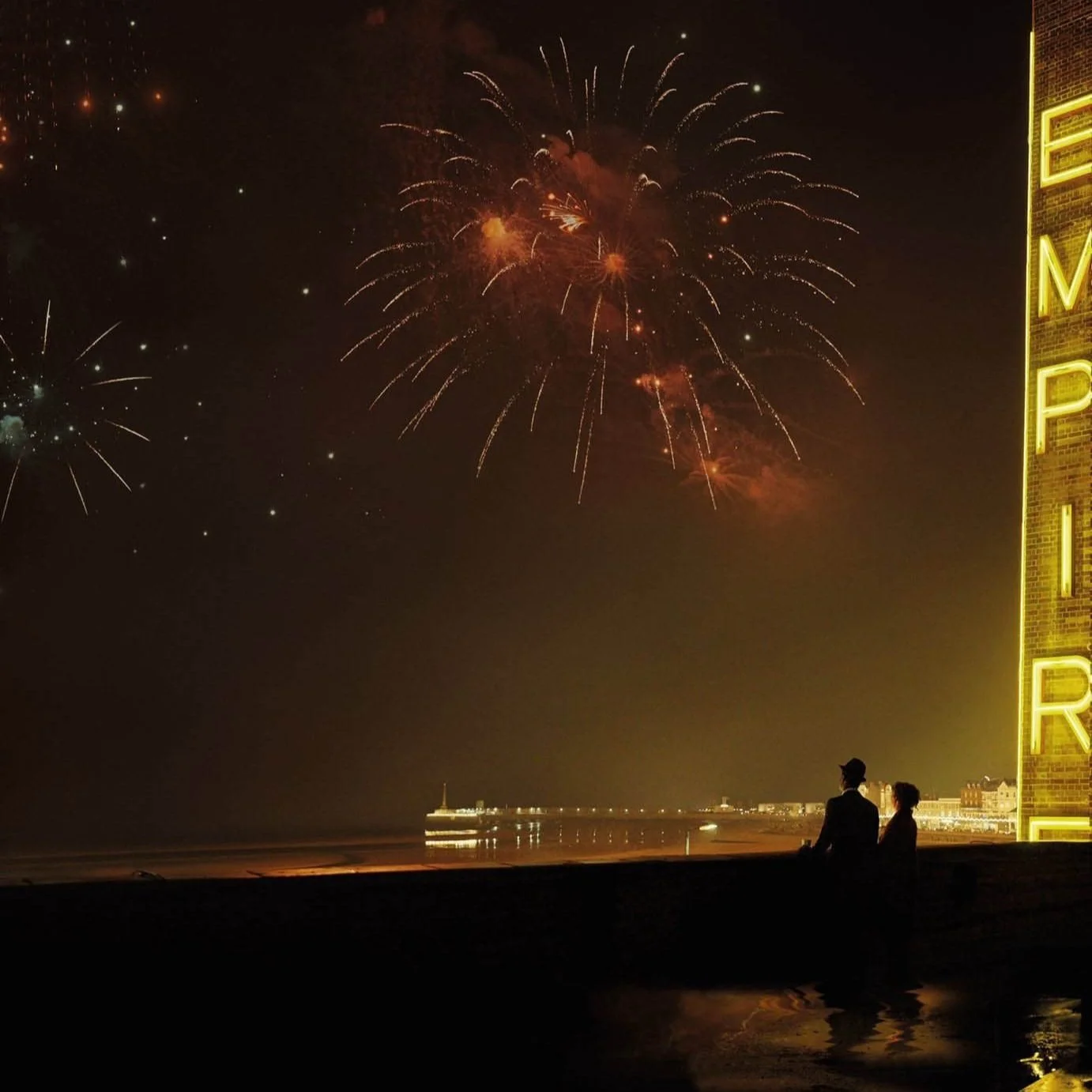Review: Empire of Light — a poignant tribute to the value of movies
There are certain movies that make one conscious of the very act of going to the movies. You walk towards the theater with a heightened awareness of the theater — its character and its drabness, the rusted gray outside and the frayed, Deco-plush inside. You settle into your seat, taking into account the rather cramped, forlorn auditorium to which you’ve been assigned, surveying the assortment of heads (most of them older, white-haired) that bob up and down around you, whispering confidences or speculations as the lights start to dim.
Some of your fellow audience members will continue to talk into the movie, with their low mumbling and inevitable exclamations at obvious things that appear onscreen (“Thatcher!” “Private Benjamin!” “She’s taking anti-depressants!”). This time, I allowed myself to feel affection for them. You don’t always know quite what you’ve got ‘til it’s gone; it took having the movies taken away for a period of time for me to realize, or remember, that the things I once claimed to resent about the experience were, in fact, part of the experience.
All of this occurred to me while watching Empire of Light — an elegant, gentle masterwork that appreciates movies just as tenderly as it does the people who go to see them. Beginning at Christmastime 1980, it follows the lives of two modest people who work at the fading Empire Cinema in Margate: Hillary (played by Olivia Colman), the theater’s middle-aged deputy manager, who struggles with depression, and Stephen (Micheal Ward), a new usher in his early twenties who is putting off applying to university while enduring increased racism as result of Britain’s reactionary government.
An unlikely pair, objectively speaking, Hillary and Stephen nonetheless fall for one another and begin an intimate relationship that punctures holes in the scrim of isolation that limits both their lives. They let in rays of light for one another.
Though life intervenes and either lover makes choices that hurt or estrange the other, it all amounts to a kind of grace. The film may be slightly imbalanced in its focus on one character’s world over the other — specifically, white Hillary’s over Black Stephen’s — but Empire of Light is anything but uneven or coarse. It fashions itself as a eulogy, yet it soars with operatic life force.
It is written and directed by Sam Mendes, one of the most consistently interesting, thoughtful filmmakers of his generation. Beginning with American Beauty (‘99), he built a steady, sound set of examinations into U.S. morality during the post-9/11 years with Road to Perdition (‘02), Jarhead (‘05), and Revolutionary Road (‘08). This last decade has seen Mendes turn his incisive eye toward his native Britain, giving us a pair of sober yet sensible Bond flicks — Skyfall (‘12), the better of the two, and Spectre (‘15) — before the technically ambitious and wrenchingly fatalistic 1917 (‘19).
Coming on the heels of those last three undertakings, Mendes’ latest work is strikingly low key, even as its mild-mannered subjects seem to carry the same emotional distress as that of an aging spy or a soldier charging across the battlefield. There is a desperation to Empire of Light, a crushing human need that hovers around its characters as they haunt a palatial theater — present inhabitants, and ghostly specters to cinema’s pending obsolescence.
They crave one another just as achingly as the movies crave them. An empty theater is, at once, chillingly impersonal and unforgivably lonely.
Mendes captures this sense of simmering ennui with the assistance of Roger Deakins, the elder poet-philosopher of cinematography, as well as titan editor Lee Smith. He also has the era-defining composers Trent Reznor and Atticus Ross in tow, and their music here is startling in its luminosity even as it is characteristically spare, coaxing, monumental.
Which is to say nothing of the lead actors: Olivia Colman is dependably lovely, while Micheal Ward is beautiful, commanding, intelligent. An actor of presence and conscience.
They are bolstered by sensitive work from Tom Brooke and Toby Jones — the latter of whom plays the projectionist at Empire Cinema, a man of stubborn awe and regret. He has failed people in his home life, yet is euphoric in his devotion to film projection. “It’s just static frames,” he muses, “with darkness in between… [creating] an illusion of motion. An illusion of life.” It is the parallel that Mendes draws between the static yet moving frames of cinema and the static yet moving lives of his characters that makes Empire of Light a poignant tribute to not simply the existence, but the value of movies.
While there’ve been efforts made this year by a handful of revered filmmakers (Steven Spielberg, Damien Chazelle) to consecrate their art form, these efforts have tended to focus on the process of making movies. Empire of Light is unique — and, perhaps, more successful — because it grounds itself in what film does: where films are shown, who sees them, and what film means in the course of those people’s lives.
It never sits well with me when people describe going to the movies as “an escape.” Even the characters in this movie describe them as such, believing that, somehow, what we know of life disappears once we’ve surrendered ourselves to the mystical darkness and the flickering light. At its best, cinema is not an escape but a celebration — an affirmation of life.
Empire of Light is a great gesture of the medium, to the medium. And to its audience.
